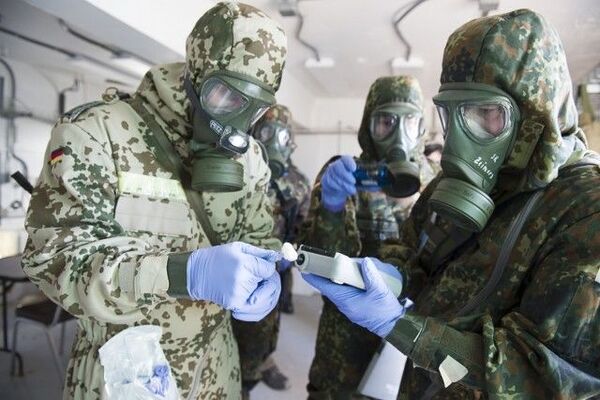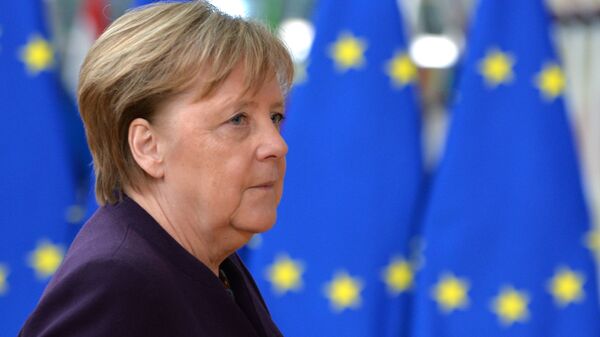German Chancellor Angela Merkel reaffirmed Thursday that her government's reaction to the Navalny case, including possible sanctions, will depend on Russia's reaction to recent developments.
"Yesterday, I gave a comprehenseive statement of what we're about to do over the next few days, and that a lot will depend on the Russian reaction. I don't have anything to add to my remarks from yesterday," Merkel said during a press conference with Swedish Prime Minister Stefan Lofven.
On Wednesday, Merkel announced that German authorities were now treating the Navalny case as "an attempted murder by poisoning", and that Berlin would be consulting with its NATO and European allies and partners to discuss how to proceed.
The chancellor made the remarks after a government spokesman announced that a Bundeswehr analysis of Navalny's samples had shown that he had been been poisoned by a nerve agent of the so-called 'Novichok' group.
Earlier Thursday, Kremlin spokesman Dmitry Peskov reiterated that Russia did not poison the opposition figure, and urged Berlin and other countries not to "jump to conclusions" on the matter. Peskov added that there have been no contacts between Merkel and Russian President Vladimir Putin on this issue since Berlin made its allegations Wednesday. He also stressed that Russia is ready to cooperate with German authorities, and that the Moscow Prosecutor General's Office has sent an official request, but hasn't received a response from the German side.
Bundestag Divided on How to Respond

However, Wolfgang Kubicki, vice-president of the Bundestag from the Free Democratic Party, expressed doubts about the government’s narrative on the Navalny case, and urged Berlin against making any drastic moves regarding cooperation with Moscow on the energy infrastructure project.
“I am skeptical as to whether we should question a project of this magnitude based on the current phase of our findings,” Kubicki said, his comments cited by dpa. “I do not want to believe that [Russian President] Vladimir Putin or the Russian government is behind this attack. There are also forces in Russia which sometimes have a life of their own.”
Kubicki believes it’s vital to clarify the background to the Navalny situation, and if he was poisoned, to hold those responsible to account. “My hope is that Putin himself will document that it did not happen at his behest, that it did not happen under his aegis. Should it be otherwise – if we do not get any reasonable explanations, in the coming weeks, months and years, we will experience an ice age in relations between Germany and Russia,” the senior lawmaker warned.
Berlin's allegations about Navalny came just a day after Merkel's announcement Tuesday that Nord Stream 2 would be completed, regardless of recent US sanctions threats.
The White House, which has put pressure on Berlin to dump its infrastructure project with Russia in favour of its own LNG exports, called the German government's allegations against Russia "deeply troubling", and promised to "work with allies and the international community to hold those in Russia accountable, wherever the evidence leads, and restrict funds for their malign activities".
Russian Intelligence Doesn't Rule Out Foul Play
Also Thursday, Russian Foreign Intelligence Service director Sergei Naryshkin told Sputnik that said it "could not be ruled out" that foreign intelligence services were behind the situation surrounding Navalny's alleged 'poisoning'.
"Yesterday's statement by German officials raises more questions than it gives answers," he said, emphasising that Russian doctors hadn't found any traces of poison in Navalny's system before his transfer to Germany.
Navalny arrived in Germany from the Siberian city of Omsk on August 22, where he has been treated since August 20 after falling gravely ill during a Moscow-bound flight from Tomsk.
Navalny has been a staple of Russia's liberal opposition for over a decade, and is arguably the best known Russian opposition figure in the West. The politician and blogger has done countless investigations into alleged corruption by Russian officials and businessmen, but also has several criminal convictions of his own, including for money laundering, and a 2014 fine for libel against a district councillor.


